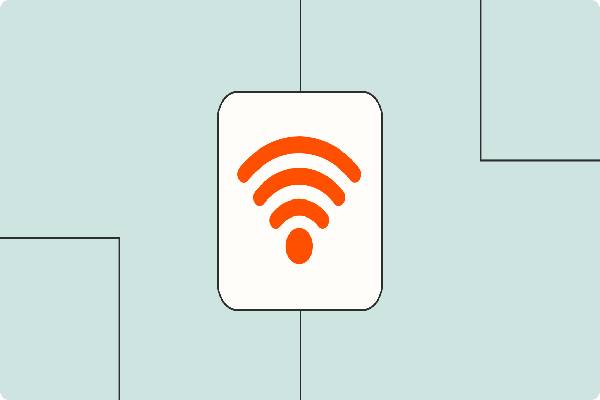impact of technology in canadian healthcare

Introduction
Technology has revolutionized healthcare worldwide, and
Canada is no exception. The Canadian healthcare system has witnessed significant
technological advancements, transforming how healthcare is delivered, managed,
and accessed. This essay explores the impact of technology on Canadian
healthcare, focusing on key areas such as electronic health records (EHRs),
telemedicine, artificial intelligence (AI), and health informatics. It examines
the benefits, challenges, and prospects of technology integration, highlighting
the role of innovation in improving patient care, healthcare efficiency, and
overall health outcomes in Canada.
Advancements in Technology in Canadian Healthcare
Electronic Health Records (EHRs): The implementation of EHR
systems in Canada has improved the sharing and accessibility of patient
information across healthcare settings. Procedures such as Canada Health
Infoway and provincial initiatives have facilitated the digitization of medical records enhancing care coordination, reducing medical errors, and supporting
evidence-based decision-making.
Telemedicine: Telemedicine has gained prominence in Canada,
especially in remote and underserved areas. Virtual consultations, remote
monitoring, and telehealth platforms enable healthcare providers to reach
patients who face geographic or mobility barriers. Telemedicine has expanded
access to specialized care, improved patient engagement, and reduced the strain
on healthcare infrastructure.
Artificial Intelligence (AI): AI technologies, such as
machine learning and natural language processing, are being utilized in various
healthcare applications in Canada. AI algorithms analyze vast amounts of data
to identify patterns, predict disease outcomes, and personalize treatment
plans. AI-powered tools assist in diagnostics, image analysis, and drug
discovery, enhancing accuracy and efficiency in healthcare delivery.
Health Informatics: Health informatics is crucial in
collecting, analyzing, and utilizing health data for improved decision-making
and healthcare management. Data analytics, data mining, and health information
exchange platforms support population health initiatives, disease surveillance,
and public health interventions. Using informatics in research and policy
development also facilitates evidence-based practices and health system
improvements.
Challenges in Technology Integration
Privacy and Security Concerns: Integrating technology in
healthcare raises privacy and security concerns regarding protecting patient
data. Ensuring robust data encryption, secure network infrastructure, and
adherence to privacy regulations are essential to maintain patient trust and
safeguard sensitive health information.
Interoperability Issues: Achieving seamless interoperability between healthcare systems, EHRs, and telemedicine platforms remains challenging. Lack of standardized data formats, varying techniques across provinces, and incompatible technologies hinder the efficient exchange of patient information and collaboration among healthcare providers.
Workforce Training and Adoption: Successful technology
integration requires adequate training and support for healthcare
professionals. Training programs to enhance digital literacy, data management
skills, and proficiency in technology-enabled healthcare delivery are necessary
to maximize the benefits of technology and overcome resistance to change.
Cost and Sustainability: Implementing and maintaining
technology infrastructure can be costly. Healthcare organizations and
governments face the challenge of funding technology initiatives while ensuring
long-term sustainability. Balancing the cost-effectiveness of technological
advancements with the need for continuous upgrades and maintenance is crucial.
Future Prospects and Opportunities
Enhanced Patient Engagement: Technology offers opportunities
to improve patient engagement and self-management. Patient portals, mobile
health applications, and wearable devices empower individuals to monitor their
health, access personalized information, and actively participate in their
care. Technology integration can enhance health outcomes and patient
satisfaction by promoting patient-centered care.
Predictive Analytics and Precision Medicine: AI and big data
analytics can enable predictive modeling and personalized medicine in Canada.
Analyzing vast datasets and genetic information can help identify individuals
at risk of specific diseases, optimize treatment plans, and predict population
health trends. Precision medicine approaches can enhance healthcare efficiency,
reduce healthcare costs, and improve patient outcomes.
Remote Monitoring and Chronic Disease Management:
Technology-enabled remote monitoring tools hold great potential in managing
chronic diseases and promoting preventive care. Continuous monitoring of vital
signs, medication adherence, and lifestyle factors can enable early
intervention, reduce hospitalizations, and empower patients to manage their
health actively.
Collaborative Care and Interprofessional Communication: Technology
can facilitate interprofessional collaboration and communication among
healthcare providers. Integrated platforms, teleconferencing tools, and secure
messaging systems enable seamless information sharing, care coordination, and
collaborative decision-making, enhancing the continuity and quality of patient
care.
Conclusion
Technology integration has profoundly impacted Canadian
healthcare, offering numerous benefits and opportunities for improvement.
Advancements in electronic health records, telemedicine, artificial
intelligence, and health informatics have enhanced patient care, access to
healthcare services, and healthcare system efficiency. However, challenges
related to privacy, interoperability, workforce training, and sustainability
must be addressed to harness the potential of technology in healthcare fully.
With continued innovation, collaborative efforts, and stakeholder engagement, integrating
technology into Canadian healthcare can shape a more patient-centered,
efficient, and effective healthcare system, ultimately leading to improved
health outcomes for all Canadians.

.jpg)
Comments
Post a Comment